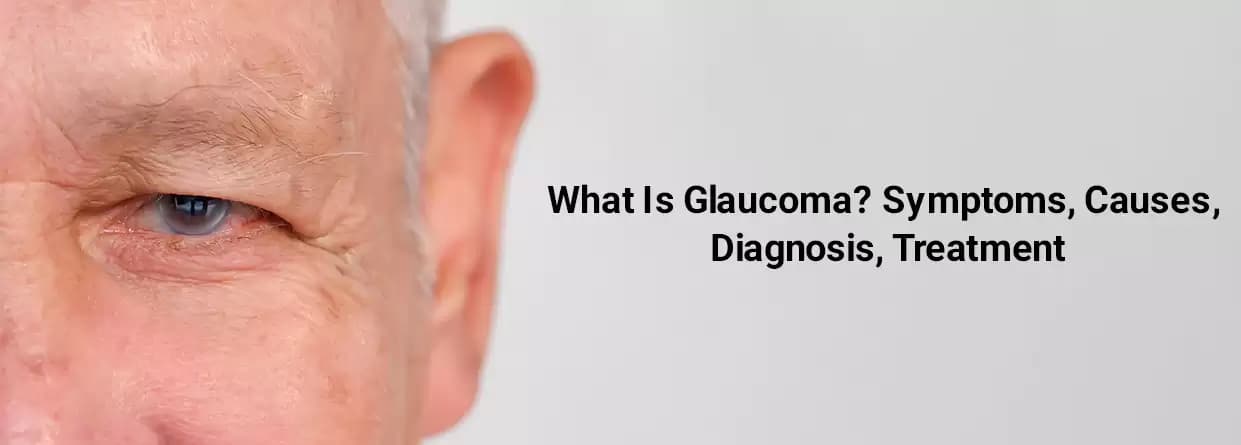
This blog can provide you with information regarding the early symptoms of glaucoma, what causes this disease and how you can manage it. Since many forms of glaucoma have no warming signs, most people do not notice any change in their vision until the condition becomes severe.
“The world is bright, save your sight”
The quote represents the theme for World Glaucoma Week 2023 to raise awareness and eliminate blindness caused by glaucoma. Glaucoma is often considered the silent thief of sight, affecting your vision without any apparent signs or symptoms. Experts suggest that 1 in 8 Indians are at risk of developing irreversible blindness. Therefore, early detection can preserve your eyesight and prevent complete blindness.
This blog can provide you with information regarding the early symptoms of glaucoma, what causes this disease and how you can manage it. Since many forms of glaucoma have no warming signs, most people do not notice any change in their vision until the condition becomes severe. Hence, the need for early recognition and treatment can be a breakthrough for patients with chronic vision disorders. Please note that this blog is only for informational purposes and does not replace the significance of a doctor’s consultation.
The medical definition of glaucoma refers to it as a medical condition that affects the optic nerve in the eye, gradually causing severe vision disorders. In layman's terms, glaucoma is one of the significant causes of irreversible blindness in both men and women. The condition can affect people of all ages but is most prominent in people aged 40 years and above.
Glaucoma can be categorised into four different types - Open-angle glaucoma, Angle-closure glaucoma (closed-angle glaucoma), Congenital glaucoma, and Secondary glaucoma. Open-angle glaucoma is one of the most common types of glaucoma which blocks the flow of fluid causing pressure to build up in the eye. Remember, early detection and medical intervention can help preserve vision disorder from glaucoma.
“Have I got pink eye or glaucoma?” This is a common dilemma for people who may be at risk of glaucoma. The symptoms of glaucoma depend on the type and stage of the condition.
|
Open-Angle Glaucoma |
|
|
Acute Angle-Closure Glaucoma |
|
|
Normal-Tension Glaucoma |
|
|
Pigmentary Glaucoma |
|
The primary cause of glaucoma is associated with damage to the optic nerve. Our eyes constantly make aqueous humour. The old aqueous humour is drained out by the new aqueous humour which flows into the eyes through a mesh-like channel.
When this channel gets blocked or obstructed, it can eventually lead to vision problems. Common causes of glaucoma include -
Additionally, several risk factors can affect both children and adults. You are at an increased risk of being diagnosed with glaucoma if -
Before the glaucoma treatment, the doctor recommends several diagnostic tests to confirm vision loss due to this condition. Diagnosis for glaucoma includes vision tests where the doctor dilates the pupils and examines the optic nerve to look for signs of glaucoma. Diagnostic tests for glaucoma include -
The treatment for glaucoma aims to repair the damaged optic nerve and improve vision. The treatment methods include surgical and non-surgical options depending on the severity and type of glaucoma. Here are some effective treatment methods -
Globally, glaucoma is the second leading cause of blindness after cataracts. It is estimated that this condition affects 4.5 million people worldwide. Therefore, it is vital to be aware of the symptoms to choose the best treatment option for you. There are several treatment options which can be effective depending on the severity of the disease and the age of the patient.
Eventually, it all boils down to getting regular eye checkups after a certain age, eating a balanced and healthy diet and inculcating a healthy lifestyle to reduce the chances of glaucoma.
Ophthalmologist is a medical professional who deals with the diagnosis and treatment of medical conditions related to the eyes. Since glaucoma develops gradually, early diagnosis can lead to effective treatment.
Yes, there are several surgical and non-surgical methods which can help manage the symptoms of glaucoma. Certain eye drops, medications, and surgical methods can treat vision disorders due to glaucoma. However, early detection can help manage the condition more effectively and produce better results.
Yes, people with a family history of glaucoma are at an increased risk of being diagnosed with the condition in their later stages. However, glaucoma is not always inherited. Contact an ophthalmologist in Kolkata for early diagnosis and reduce the risk of complications.
The doctor usually tests your vision and examines your optic nerves to look for any signs of glaucoma. Further, if the condition is severe, you may have to undergo certain tests like Tonometry, imaging tests, visual field test, pachymetry, gonioscopy, etc.
People with glaucoma often describe the condition as inflicting a sharp throbbing eye pain. Glaucoma vision feels like blurry or foggy vision along with some patients experience halos around the lights.
Written and Verified by:
-Dr.-Bhaskar-Roy-Chowdhury-(-Opthamalogy-).webp&w=256&q=75)
Dr. Bhaskar Ray Chaudhuri is a Consultant in Ophthalmology Dept. at CMRI, Kolkata, with over 25 years of experience. He specializes in cataract surgery, corneal transplants, keratoconus management, dry eye disease treatment, and glaucoma management.
© 2024 CMRI Kolkata. All Rights Reserved.